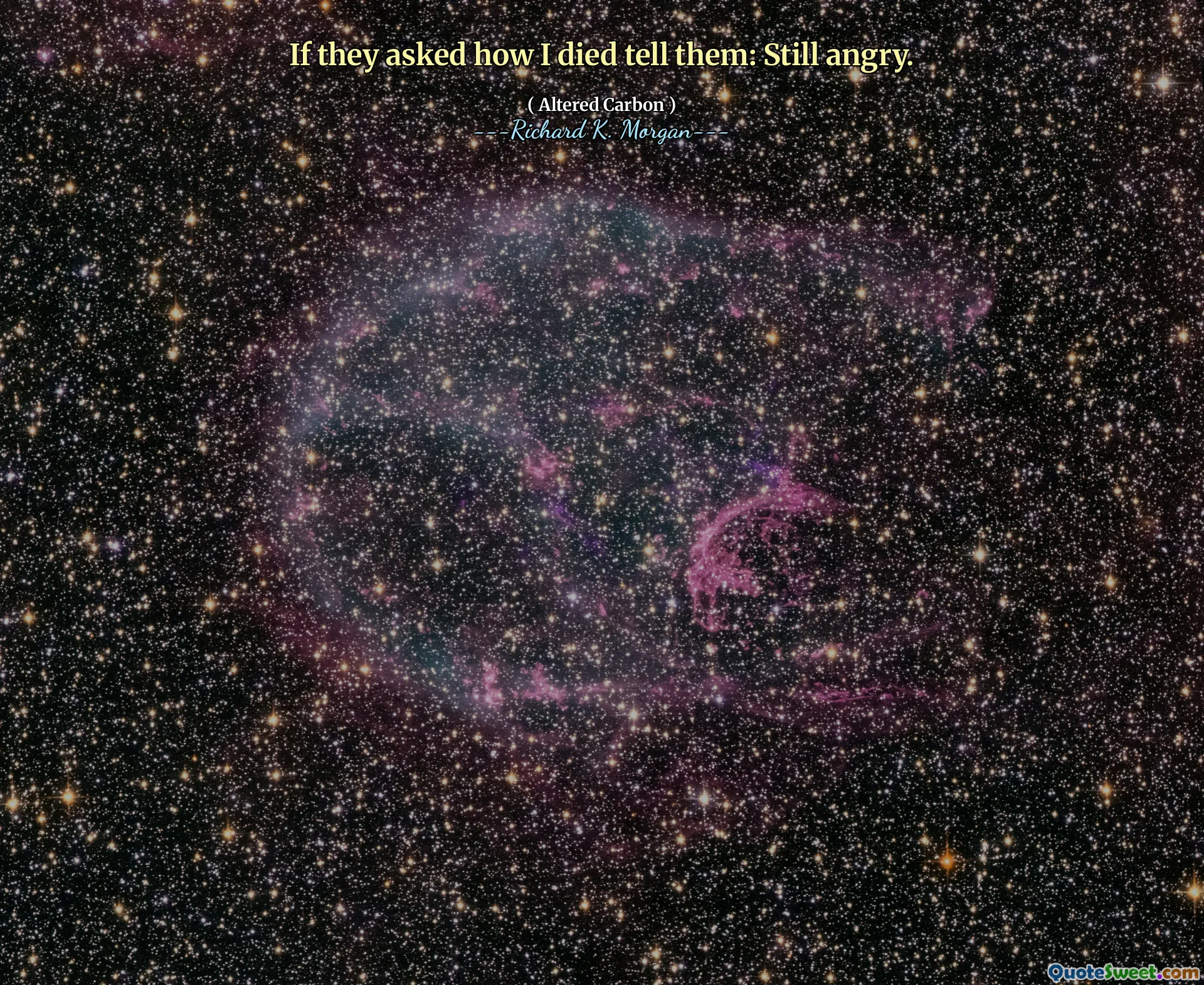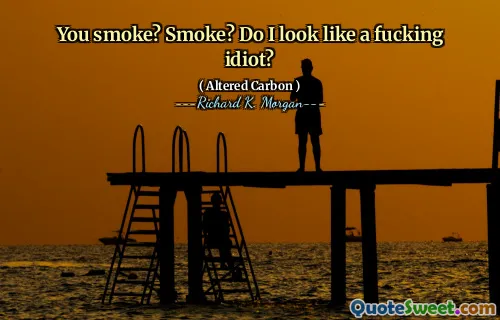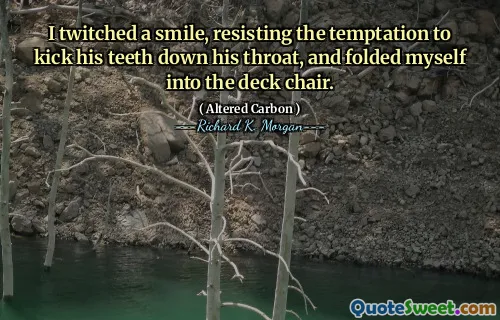
If they asked how I died tell them: Still angry.
This quote poignantly captures the enduring power of unresolved emotions and the way they can define one's existence beyond death. It suggests that the individual's lingering anger is so profound that it transcends mortality itself; even in death, their emotional state remains a defining characteristic. Such a statement resonates with the idea that unresolved feelings such as anger, resentment, or rage can become a fundamental aspect of one's identity, influencing perceptions and narratives even after they are gone. It also speaks to a narrative of defiance—a declaration that the core of a person’s being cannot be dismissed or forgotten merely because they have passed away.
The phrase invites reflection on how unaddressed emotional wounds shape our stories and memories. Often, society prefers sanitized versions of history, emphasizing virtues and virtues; however, this quote dares to acknowledge raw, human realities—where anger and pain persist despite the passage of time. It emphasizes that true resolution might be elusive, and sometimes, the emotional scars become the most authentic legacy. The quote also raises questions about how others remember us: do they focus on virtues, or do they recognize the depth of unresolved feelings that may have driven our actions?
Finally, from a philosophical perspective, the quote underscores the importance of confronting and understanding our emotions rather than suppressing them. Whether true or rhetorical, it acknowledges that anger—if left unchecked—can become a defining element of our life story, influencing how we are remembered and how we see ourselves.
Taken from the context of the book '(Altered Carbon)' by Richard K. Morgan, the quote aligns with themes of identity, mortality, and the deep complexities of human emotion, reminding us that beneath surface appearances lie layered, often conflicted, human depths.








